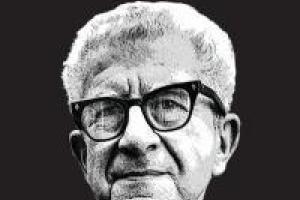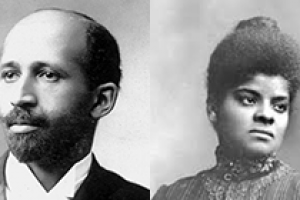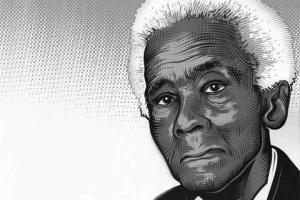Ethel Rosenberg Day of Justice in the Borough of Manhattan" Declared on Sep 28, Ethel's 100th Birthday
Rosenberg Fund for Children
 Controversial posting, by a long-time peace and social justice activist - Obama is the best occupant of the office since the end of World War II. We're unlikely to elect anyone of his quality in 2016. Like all presidents post-World War II, he has presided over the world's most (super) powerful empire. 'American exceptionalism' and flouting superior military and economic might, the empire systematically generates negative consequences for peace at home and worldwide.
Controversial posting, by a long-time peace and social justice activist - Obama is the best occupant of the office since the end of World War II. We're unlikely to elect anyone of his quality in 2016. Like all presidents post-World War II, he has presided over the world's most (super) powerful empire. 'American exceptionalism' and flouting superior military and economic might, the empire systematically generates negative consequences for peace at home and worldwide.
 Herbert Aptheker, to introduce the man by his highest prestige, was an early scholar of African American uprisings against slavery, and in his middle years, the director and coordinator of the W.E.B. DuBois Papers, one of the great archival triumphs of US history at large. For many in the 60s, through his books and public apperances, a generation became aware of the Communist Party, U.S.A.
Herbert Aptheker, to introduce the man by his highest prestige, was an early scholar of African American uprisings against slavery, and in his middle years, the director and coordinator of the W.E.B. DuBois Papers, one of the great archival triumphs of US history at large. For many in the 60s, through his books and public apperances, a generation became aware of the Communist Party, U.S.A.
 New books and research in African American history and culture. Recent or soon-to-be published books, which the African American Intellectual History Society feels would be of interest to readers. Regrettably the cost for some puts these out of reach of many - but there is always your public or school library. Suggest that these be ordered.
New books and research in African American history and culture. Recent or soon-to-be published books, which the African American Intellectual History Society feels would be of interest to readers. Regrettably the cost for some puts these out of reach of many - but there is always your public or school library. Suggest that these be ordered.
 America's unions have been in retreat for decades - but can history point toward some fresh starts? Steve Fraser's book The Age of Acquiescence reminds us that America's worker movement-100 years ago-was a rather militant creature compared to today. Then, it was worker militias, "bread and roses," and unabashed class conflict; now, it's defense and dwindling membership, and disappointing Democrats. How did we get here? Is there still power in a union?
America's unions have been in retreat for decades - but can history point toward some fresh starts? Steve Fraser's book The Age of Acquiescence reminds us that America's worker movement-100 years ago-was a rather militant creature compared to today. Then, it was worker militias, "bread and roses," and unabashed class conflict; now, it's defense and dwindling membership, and disappointing Democrats. How did we get here? Is there still power in a union?
 To ignore race, C.L.R. James often said, in many contexts and many ways, was a disaster in any social understanding; only the ignoring of class would be worse. Or to put it in his own words: The race question is subsidiary to the class question, and to think of imperialism in terms of race is disastrous. But to neglect the racial factor as merely incidental, is an error only less grave than to make it fundamental.
To ignore race, C.L.R. James often said, in many contexts and many ways, was a disaster in any social understanding; only the ignoring of class would be worse. Or to put it in his own words: The race question is subsidiary to the class question, and to think of imperialism in terms of race is disastrous. But to neglect the racial factor as merely incidental, is an error only less grave than to make it fundamental.
 I celebrate Radical Reconstruction, a brief moment of glory, no matter how blindly and halfheartedly we, as a nation, did it. Did Reconstruction end racism? No. Does that make it a failure? No again. Considering it a failure is like considering the civil rights movement a failure because it only abolished segregation and not racism.
I celebrate Radical Reconstruction, a brief moment of glory, no matter how blindly and halfheartedly we, as a nation, did it. Did Reconstruction end racism? No. Does that make it a failure? No again. Considering it a failure is like considering the civil rights movement a failure because it only abolished segregation and not racism.
 Reader Comments: The GOP, Trump and the Appeal to Reaction; No Union Mines in Kentucky; Black Panther Party film; Lessons from Alabama's Black Communists and the #BLM; Indigenous People's History of the United States; Serena Williams; Climate Change and Workers;
New Resource: Black Lives Matter Syllabus;
Livestream Sept. 18: Unions, Workers, and the Democratic Party
Reader Comments: The GOP, Trump and the Appeal to Reaction; No Union Mines in Kentucky; Black Panther Party film; Lessons from Alabama's Black Communists and the #BLM; Indigenous People's History of the United States; Serena Williams; Climate Change and Workers;
New Resource: Black Lives Matter Syllabus;
Livestream Sept. 18: Unions, Workers, and the Democratic Party
 The first history of the United States told from the perspective of indigenous peoples. Today in the United States, there are more than five hundred federally recognized Indigenous nations comprising nearly three million people, descendants of the fifteen million Native people who once inhabited this land. The centuries-long genocidal program of the US settler-colonial regimen has largely been omitted from history. 2015 Recipient of the American Book Award.
The first history of the United States told from the perspective of indigenous peoples. Today in the United States, there are more than five hundred federally recognized Indigenous nations comprising nearly three million people, descendants of the fifteen million Native people who once inhabited this land. The centuries-long genocidal program of the US settler-colonial regimen has largely been omitted from history. 2015 Recipient of the American Book Award.
Spread the word